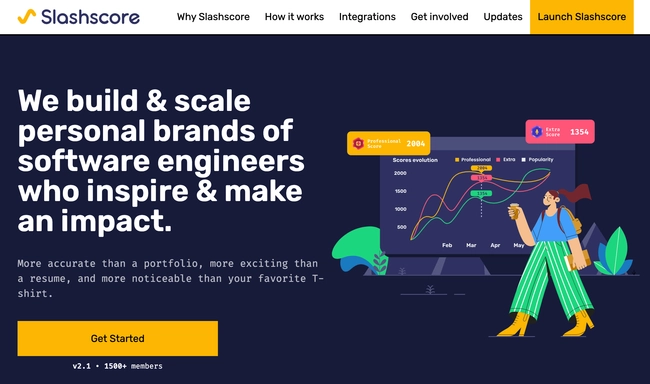In the age of rapid technological advancements, the fear of automation and artificial intelligence (AI) replacing human jobs has become a prevalent concern.
However, not all professions are at risk of being taken over by machines. There are certain jobs that require a unique combination of skills, decision-making capabilities, and human touch that AI simply cannot replicate.
In this comprehensive article, we will explore a variety of industries and roles that are unlikely to be replaced by AI anytime soon.
Introduction
In recent years, there has been a growing concern about the impact of AI on the job market. While it is true that AI has the potential to automate many tasks and replace certain jobs, there are several industries and roles that require a level of human intuition, creativity, and emotional intelligence that AI simply cannot replicate.
These jobs rely on the human touch and are essential for the functioning of our society.
The Importance of Human Touch
One of the main reasons why certain jobs cannot be replaced by AI is the importance of the human touch. Jobs that involve interpersonal interactions, empathy, and emotional intelligence are unlikely to be automated.
For example, teachers play a crucial role in shaping young minds and imparting knowledge.
The personal connection and guidance they provide cannot be replicated by AI.
Another aspect of the human touch is the ability to make complex decisions and navigate unpredictable situations.
Jobs that require judgment, critical thinking, and problem-solving skills are less likely to be automated. This includes roles in the legal profession, management positions, and political leadership.
Jobs in Education
 Image source: Pexels
Image source: Pexels
Teachers play a vital role in society by educating and shaping future generations. While AI can assist in certain aspects of education, such as personalized learning and grading, the role of a teacher goes beyond the transfer of knowledge.
Teachers provide mentorship, guidance, and emotional support to students, which cannot be replaced by machines.
Furthermore, teachers are skilled in adapting their teaching methods to cater to the unique needs and learning styles of each student. They foster critical thinking, creativity, and social skills through interactive and engaging lessons.
AI lacks the ability to connect with students on a personal level and provide the necessary emotional support that is crucial for their development.
Legal Professions
 Image source: Pexels
Image source: Pexels
The legal profession requires a deep understanding of complex laws, regulations, and ethical considerations. Lawyers and judges possess a wealth of knowledge and experience that enables them to provide legal advice, argue cases, and make informed decisions.
AI may assist in legal research and document review, but it cannot replace the expertise and judgment of human legal professionals.
In courtrooms, lawyers present arguments, cross-examine witnesses, and make persuasive appeals. These skills require emotional intelligence, intuition, and the ability to respond to unexpected developments.
Similarly, judges must interpret the law, weigh evidence, and apply their expertise to make fair and just decisions. These aspects of the legal profession are unlikely to be replicated by AI.
Leadership and Management Roles
 Image source: Pexels
Image source: Pexels
Leadership and management roles within organizations require a unique set of skills that go beyond technical expertise. CEOs, managers, and directors are responsible for setting strategic goals, making critical decisions, and motivating teams. These roles involve communication, collaboration, and the ability to inspire and lead others.
AI may assist in data analysis and provide insights for decision-making, but the final responsibility lies with human leaders.
The human element is crucial for effective leadership, as it involves building relationships, understanding employee needs, and fostering a positive work culture.
Trust and human connection are essential for successful leadership, and these qualities cannot be replaced by AI.
The Role of Politicians
 Image source: Pexels
Image source: Pexels
Politicians play a vital role in shaping policies, representing their constituents, and making decisions that impact society as a whole.
While AI can assist in data analysis and provide insights into public opinion, the role of politicians goes beyond data-driven decision-making. Politicians must navigate complex social, economic, and ethical issues and make choices that reflect the interests of their constituents.
Furthermore, politicians are accountable to the public and must engage in public discourse, build coalitions, and address the concerns of their constituents. These skills require emotional intelligence, persuasion, and the ability to connect with diverse groups of people.
The human element in politics is essential for democratic decision-making and effective governance.
The Human Element in Human Resources
 Image source: Pexels
Image source: Pexels
Human Resource (HR) professionals play a crucial role in managing and developing an organization’s most valuable asset: its employees.
While AI can automate certain HR processes, such as resume screening and employee onboarding, the human element is essential for tasks that require empathy, intuition, and understanding of human behavior.
HR managers are responsible for recruitment, employee engagement, conflict resolution, and career development. These tasks involve understanding individual needs, building relationships, and fostering a positive work environment.
AI may assist in data analysis and provide insights, but it cannot replace the human touch required for effective HR management.
The Artistic World
 Image source: Pexels
Image source: Pexels
The artistic world encompasses a wide range of creative professions, including painters, musicians, actors, writers, and directors.
These roles require imagination, creativity, and the ability to evoke emotions in the audience. While AI can generate music, create visual art, or even write stories, it lacks the human touch and emotional depth that artists bring to their work.
Artists have the ability to connect with audiences on a deep emotional level and convey complex ideas and experiences through their art.
Their work is driven by personal experiences, emotions, and unique perspectives that cannot be replicated by AI.
The human element in art is what makes it so powerful and meaningful to individuals and society as a whole.
Healthcare and Personal Care
 Image source: Pexels
Image source: Pexels
The healthcare industry is another sector that heavily relies on the human touch and expertise. While AI can assist in diagnosing medical conditions, analyzing medical images, and providing recommendations, healthcare professionals play a critical role in patient care, treatment planning, and emotional support.
Doctors, nurses, and other healthcare professionals possess a wealth of knowledge, experience, and empathy that cannot be replicated by machines.
They interact with patients, provide personalized care, and make complex decisions based on a combination of medical expertise and understanding of individual needs.
The human element is essential in healthcare to provide comfort, reassurance, and compassionate care to patients.
The Future of Jobs
 Image source: Pexels
Image source: Pexels
As technology continues to advance, the job market will inevitably evolve. While certain jobs may be replaced by AI and automation, there will always be a need for roles that require the human touch, critical thinking, creativity, and emotional intelligence. It is essential for individuals to adapt and acquire new skills to thrive in the changing job landscape.
As AI continues to develop, it is crucial to strike a balance between harnessing its potential and preserving the unique qualities that make us human.
By recognizing the irreplaceable nature of certain jobs, we can ensure a future where humans and AI work together to create a better world.
In conclusion, while AI has the potential to automate many tasks and replace certain jobs, there are several professions that require a unique combination of skills, decision-making capabilities, and human touch that AI simply cannot replicate.
Jobs in education, legal professions, leadership and management roles, politics, human resources, the artistic world, healthcare, and personal care rely on the human element and are unlikely to be replaced by AI anytime soon.
It is crucial to recognize the value of these roles and the importance of human connection and expertise in our society.



